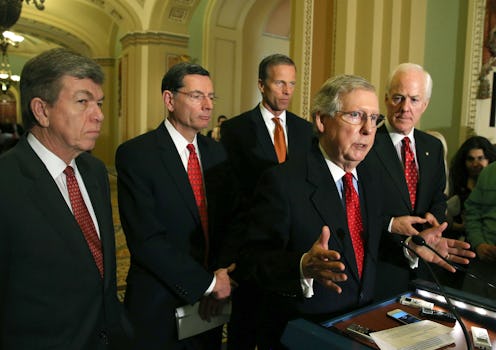News
The GOP Has A Huge, Long-Term Problem On Its Hands
It’s long been a truism in American politics that young people vote for Democrats, but the extent to which this is true has risen sharply in the last eight years. In the years between 1993 and 2003, adults 18-19 supported Democrats over Republicans by a five-point margin, according to new analysis by Gallup. But since 2006, that gap has more than tripled, and Democrats now have an 18-point advantage with the young'uns. What's more, there's good reason to believe these voters may be Democrats for life.
One reason for this is that young people, as a demographic, are becoming more racially diverse, and non-white voters are vastly more likely to support Democrats than their white peers. Only 29 percent of young people weren’t white in 1995; since then, non-whites represent 45 percent of the 18-29 demographic.
But there’s another explanation that has nothing to do with race. According to a study published in the Review of Economic Studies, experiencing a recession during the ages of 17 and 29 has serious and longterm effects on one’s political orientation. When somebody witnesses a nationwide economic shock at a young age, they’re more likely to believe that governments should help the poor and that luck plays a big role in success. They’re also more likely to vote for Democrats.
Americans in their 20s came of political age right around the time the Great Recession hit. To them, Republican tirades about individual responsibility, lazy welfare recipients, out-of-control social spending and the dangers of food stamps simply don’t resonate. Neither do glowing portrayals of CEOs as brilliant job creators should be respected due to their hard-work and perseverance.
Young people aren't voting Democratic simply because they’re young. They’re voting Democratic because of what they witnessed when they were young, and that — unlike their actual age — is going to stay with them for the rest of their lives.
